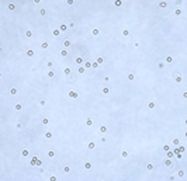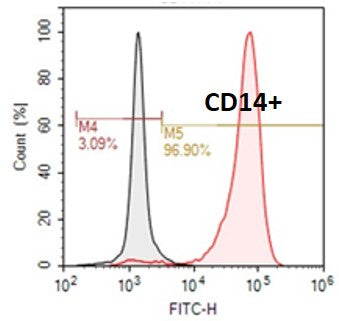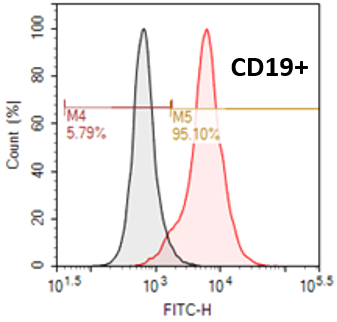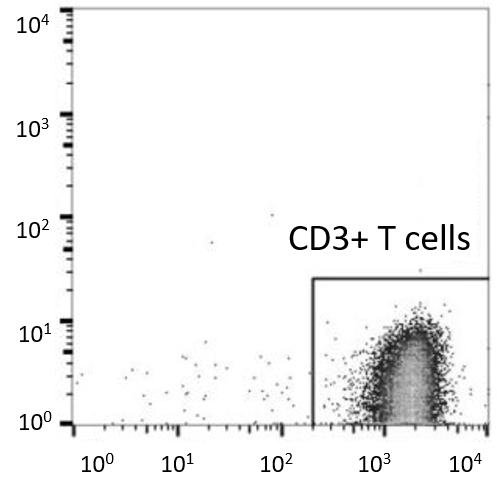
Human Normal Peripheral Blood CD19+ B Cells (Positive Selection)
 B cells is a population of cells that express clonally diverse cell surface immunoglobulin (Ig) receptors recognizing specific antigenic epitopes. They form in primary lymphoid tissues such as adult bone marrow and mature in secondary lymphoid tissues such as lymph nodes. After maturation, the B cells are subsequently activated directly by an antigen or through an antigen presenting cell (APC). At this point they either become memory B cells or plasma B cells. Each B cell gives rise to a single species of antibody. B cells express CD19 starting from as early as Ig gene rearrangement and through all phases of differentiation. Only terminally differentiated plasma cells may lose CD19 expression. CD19 is a 95kd transmembrane glycoprotein that belongs to the Ig superfamily. In blood, CD19 is specifically expressed in normal and neoplastic B cells. Functionally CD19 regulates the B cell signaling threshold and is critical for an optimal immune response. CD19 primarily acts as a B cell co-receptor in conjunction with CD21 and CD81. Upon activation, the cytoplasmic tail of CD19 becomes phosphorylated, which leads to binding by Src-family kinases and recruitment of PI-3 kinase. CD19 is also required for optimal MHC class II-mediated signaling.
B cells is a population of cells that express clonally diverse cell surface immunoglobulin (Ig) receptors recognizing specific antigenic epitopes. They form in primary lymphoid tissues such as adult bone marrow and mature in secondary lymphoid tissues such as lymph nodes. After maturation, the B cells are subsequently activated directly by an antigen or through an antigen presenting cell (APC). At this point they either become memory B cells or plasma B cells. Each B cell gives rise to a single species of antibody. B cells express CD19 starting from as early as Ig gene rearrangement and through all phases of differentiation. Only terminally differentiated plasma cells may lose CD19 expression. CD19 is a 95kd transmembrane glycoprotein that belongs to the Ig superfamily. In blood, CD19 is specifically expressed in normal and neoplastic B cells. Functionally CD19 regulates the B cell signaling threshold and is critical for an optimal immune response. CD19 primarily acts as a B cell co-receptor in conjunction with CD21 and CD81. Upon activation, the cytoplasmic tail of CD19 becomes phosphorylated, which leads to binding by Src-family kinases and recruitment of PI-3 kinase. CD19 is also required for optimal MHC class II-mediated signaling.
Our Human Normal CD19+ B cells are isolated from peripheral blood mononuclear cells by positive immunomagnetic selection. All peripheral blood is collected by leukapheresis in acid-citrate-dextrose formula A (ACDA) from fully consented IRB approved donors that are tested negative for HIV, HBV and HCV.







